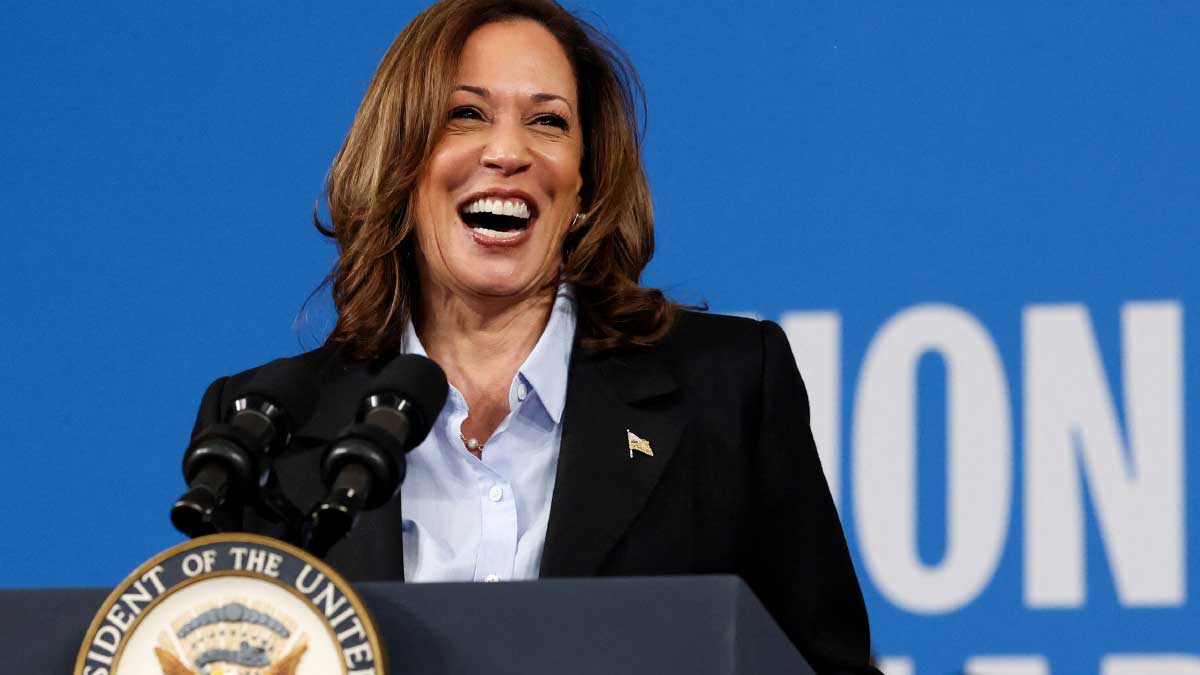- Home
- Billionaires
- Investing Newsletters
- 193CC 1000
- Article Layout 2
- Article Layout 3
- Article Layout 4
- Article Layout 5
- Article Layout 6
- Article Layout 7
- Article Layout 8
- Article Layout 9
- Article Layout 10
- Article Layout 11
- Article Layout 12
- Article Layout 13
- Article Layout 14
- Article Sidebar
- Post Format
- pages
- Archive Layouts
- Post Gallery
- Post Video Background
- Post Review
- Sponsored Post
- Leadership
- Business
- Money
- Small Business
- Innovation
- Shop
Recent Posts
Harris and Biden Reject Nippon Steel’s U.S. Steel Bid

Vice President Kamala Harris has publicly aligned herself with President Joe Biden’s strong opposition to the Japanese steel giant Nippon Steel’s proposed acquisition of U.S. Steel. At a campaign rally held in Pittsburgh on Monday, Harris articulated her firm stance against the nearly $15 billion bid, reflecting a deep-seated concern about the implications of allowing a major American steel producer to fall under foreign ownership. Harris described U.S. Steel as a “historic American company” and emphasized its critical role in the country’s industrial framework. She argued that maintaining robust American steel companies is essential for national security and economic stability. “U.S. Steel should remain American-owned and American-operated,” Harris asserted, pledging unwavering support for the American steelworkers who rely on the industry for their livelihoods.
President Biden, who spoke earlier at the event, reinforced his position against the takeover, underscoring his belief in the necessity of keeping steel production firmly under American control. Biden highlighted U.S. Steel’s status as an “iconic American company” with a history spanning over a century, stressing that its American ownership is crucial for both the industry and the broader national interest. His remarks reflect a broader administration stance that views foreign acquisitions of significant American assets with suspicion, particularly when they involve industries deemed essential for national security.
In response to the criticism from Harris and Biden, Nippon Steel has expressed confidence that their acquisition would bring substantial benefits to the American steel industry and beyond. The Japanese firm argues that their investment would not only rejuvenate the beleaguered American steel rust belt but also provide meaningful advantages to American workers, local communities, and the country’s national security. Nippon Steel is advocating for a “fair and objective regulatory review process,” which they believe will affirm the merits of their proposal and facilitate the merger’s swift completion.
The United Steelworkers union has publicly supported Harris’s opposition, praising her understanding of the steel industry’s vital role in both national security and the economic well-being of workers and communities. In a statement shared with Bloomberg, the union leaders commended Harris for recognizing the importance of safeguarding the steel industry and ensuring a secure future for those reliant on it. The union’s endorsement of Harris in July as a “true partner” who listens to and acts on the concerns of working people further underscores the alignment between Harris’s views and the interests of the steelworkers.
Opposition to Nippon Steel’s bid is also reflected in the positions taken by former President Donald Trump and his running mate JD Vance. Trump has publicly vowed to block the deal “instantaneously” if he were to win the presidential election, framing the takeover as a threat to American industrial sovereignty. Similarly, JD Vance has criticized the bid as a potential sale of a crucial component of America’s defense industrial base to foreign interests, pledging to protect the nation’s security, industry, and workforce. Both Trump and Vance’s positions reflect a broader political consensus on the need to scrutinize and potentially block foreign investments in key American industries.
The proposed acquisition, first announced in December, values U.S. Steel at $14.9 billion, inclusive of debt. Nippon Steel’s offer, which is an all-cash proposal of $55 per share, represents a 40% premium over U.S. Steel’s share price prior to the announcement. Despite receiving shareholder approval in April, the bid has drawn immediate scrutiny from the Biden administration. National Economic Council Director Lael Brainard has highlighted Biden’s concern that foreign acquisitions, even from close allies, warrant thorough examination due to potential impacts on national security and supply chain reliability. This scrutiny reflects a broader administration stance that values domestic control over critical industries as a safeguard against external vulnerabilities.
In summary, the ongoing debate over Nippon Steel’s bid to acquire U.S. Steel highlights a significant national discussion about the implications of foreign investment in essential American industries. Both Kamala Harris and President Biden’s positions underscore a commitment to preserving American ownership and control over industries critical to national security and economic stability. This issue resonates across the political spectrum, with voices from various political figures and stakeholders contributing to the broader conversation about safeguarding American industrial assets from foreign influence.
Recent Posts
Categories
- 193cc Digital Assets2
- 5G1
- Aerospace & Defense46
- AI37
- Arts3
- Banking & Insurance11
- Big Data3
- Billionaires449
- Boats & Planes1
- Business328
- Careers13
- Cars & Bikes76
- CEO Network1
- CFO Network17
- CHRO Network1
- CIO Network1
- Cloud10
- CMO Network18
- Commercial Real Estate7
- Consultant1
- Consumer Tech180
- CxO1
- Cybersecurity68
- Dining1
- Diversity, Equity & Inclusion4
- Education7
- Energy8
- Enterprise Tech29
- Events11
- Fintech1
- Food & Drink2
- Franchises1
- Freelance1
- Future Of Work2
- Games141
- GIG1
- Healthcare78
- Hollywood & Entertainment186
- Houses1
- Innovation42
- Investing2
- Investing Newsletters4
- Leadership65
- Lifestyle11
- Manufacturing1
- Markets20
- Media193
- Mobile phone1
- Money13
- Personal Finance2
- Policy567
- Real Estate1
- Research6
- Retail1
- Retirement1
- Small Business1
- SportsMoney33
- Style & Beauty1
- Success Income1
- Taxes2
- Travel10
- Uncategorized8
- Vices1
- Watches & Jewelry2
- world's billionaires418
Related Articles
Trump Moves $4B Stake in Truth Social Parent, Stock Drops 6%
Donald Trump recently transferred his 57% stake in Trump Media & Technology...
By 193cc Agency CouncilDecember 20, 2024House Rejects Trump-Backed Funding Bill, Shutdown Looms
The U.S. House of Representatives rejected a new government funding bill on...
By 193cc Agency CouncilDecember 20, 2024Trump Named Time’s Person of the Year for Second Time
On Thursday, Time magazine honored Donald Trump as its “Person of the...
By 193cc Agency CouncilDecember 12, 2024Meta Donates $1 Million to Trump’s Inaugural Fund
Meta, the parent company of Facebook and Instagram, has confirmed a $1...
By 193cc Agency CouncilDecember 12, 2024















Leave a comment